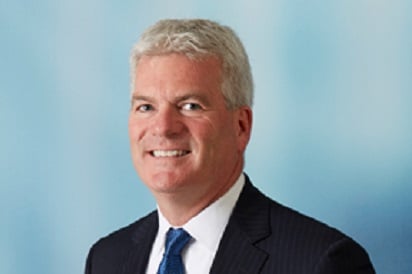Franklin Templeton PM explains why he trimmed into recent rally and what new global funds of ETFs can offer investors

Investors have been urged to return to “first principles” despite the post-December market rally that has eased late-cycle anxiety levels.
Ian Riach, SVP, portfolio manager, multi-asset solutions at Franklin Templeton Investments, said recent equity prices have reflected the pausing of interest rate increases by the Fed and Bank of Canada in light of deteriorating global growth.
Riach does not believe the rebound is sustainable at that pace – and points to the fact valuation levels are back at the same levels they were before the economic and financial numbers started to fall away. Boosting cash balances, therefore, has been his strategy.
He told WP: “We’ve actually been trimming into this recent rally and taking some risk off the table, letting cash balances rise a little bit. In order to deploy that back into either the bond or stock markets, we’d have to see valuations reset to the levels we thought we might be seeing in December. But it just rebounded so quickly in January that it was hard to react.”
Riach stressed that Franklin Templeton is not in the business of timing the market and moving from one asset class to another on a wholesale basis. However, he believes taking some risk off the table is prudent right now, as is getting back to “first principles”.
He said: “That starts by understanding what their return objectives are, whether that’s retirement, saving for a home or whatever that may be in line with their risk tolerance.
“Things have been pretty good for a while now and some of these first principles take a back seat when things are looking so good. I think investors really have to get back to these first principles, look long term and just try to ignore the day-to-day gyrations, and get some decent advice.”
Riach added that, given concerns with the North American market in the short term, he sees better value in certain areas in Europe and some emerging markets. It reflects the global perspective represented by the funds of ETFs that he manages, which offer investors diversification by geography, asset class and ETF type (passive, active and smart beta).
The Franklin Conservative Income ETF Portfolio (equity 25%, fixed income 75%), Franklin Core ETF Portfolio (equity 55%, fixed income 45%) and Franklin Growth ETF Portfolio (equity 75%, fixed income 25%) are mutual funds that invest in ETFs. Riach believes investors can benefit from their active management at asset allocation level and their low-cost appeal, which will of course become more important in a low-return environment.
Investors are slowly relinquishing the home bias that was prevalent in the early RRSP days, Riach said, but only significantly in the past two years.
He explained: “If you take a look at the Canadian equity market, it’s very concentrated on resources and financial institutions. Going global allows us to diversify into other sectors.
“If you look at the Canadian bond market, government and financial institutions, primarily the banks constitute the vast majority of the market. Again, having some global exposure even in the fixed income portfolio provides a level of diversification.
“Right here, right now, we see more attractive valuations outside of North America and even outside of some developed markets. We are waiting for some stimulus from China to take hold and benefit emerging markets but we see valuations in emerging markets being more attractive than developed markets.”
Steering people away from investing in what they are familiar with requires an education process. Riach admitted this is not always easy but that you have to show them the difference in valuations and that there are high-quality companies and sectors outside Canada and the US that offer consistent dividend growth and payments.
It’s a diversification component that can help someone’s portfolio offset some of the sudden movements in the North American equity markets, in particular.
Riach added: “We are sitting on more liquidity right now than we normally would so we are overweight cash, overweight short-term bonds. We still have a pretty meaningful commitment to the equity market so if equity markets do decline, that bond and cash component will offset some of that volatility.”


